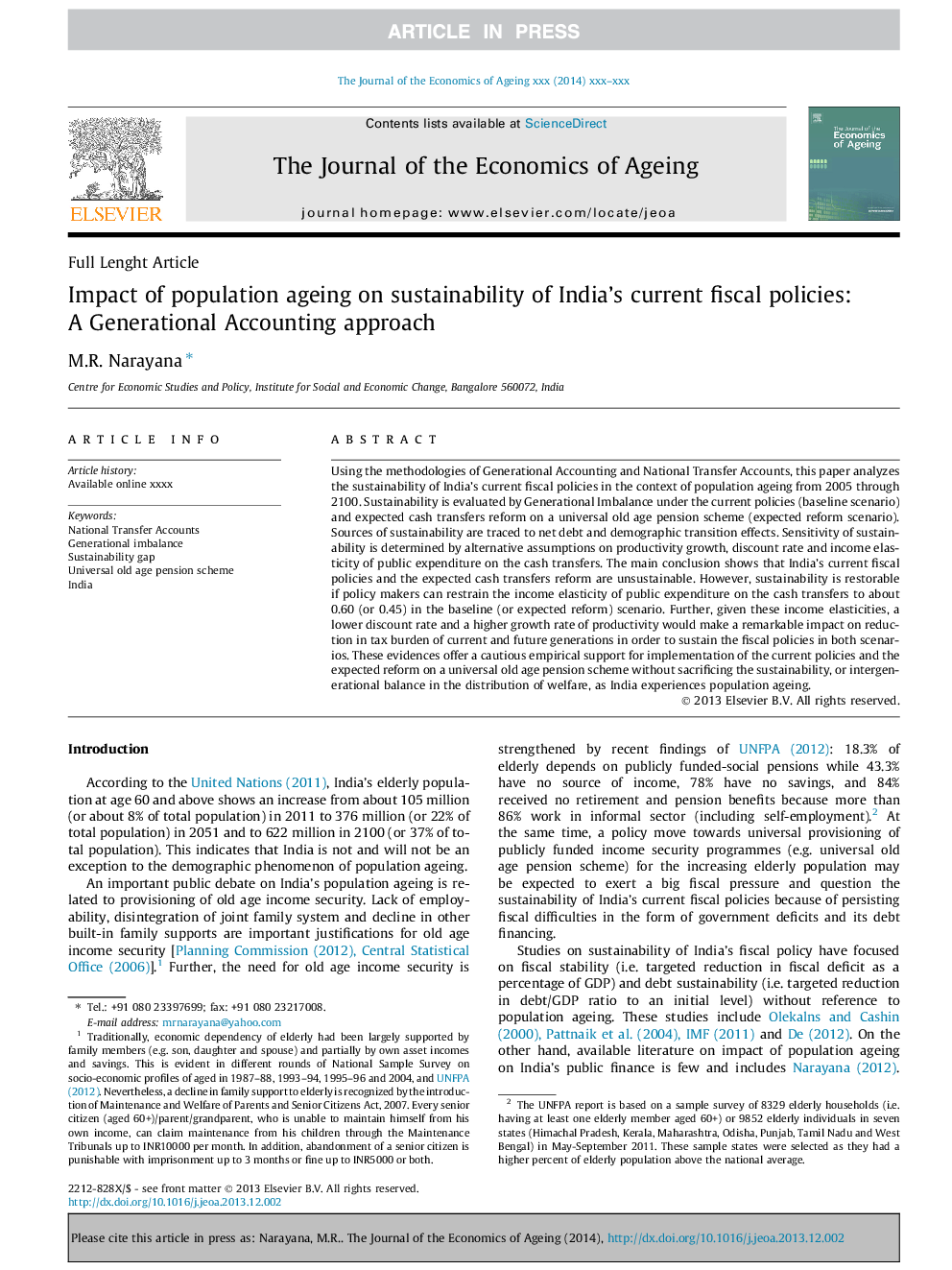| Article ID | Journal | Published Year | Pages | File Type |
|---|---|---|---|---|
| 7360084 | The Journal of the Economics of Ageing | 2014 | 13 Pages |
Abstract
Using the methodologies of Generational Accounting and National Transfer Accounts, this paper analyzes the sustainability of India's current fiscal policies in the context of population ageing from 2005 through 2100. Sustainability is evaluated by Generational Imbalance under the current policies (baseline scenario) and expected cash transfers reform on a universal old age pension scheme (expected reform scenario). Sources of sustainability are traced to net debt and demographic transition effects. Sensitivity of sustainability is determined by alternative assumptions on productivity growth, discount rate and income elasticity of public expenditure on the cash transfers. The main conclusion shows that India's current fiscal policies and the expected cash transfers reform are unsustainable. However, sustainability is restorable if policy makers can restrain the income elasticity of public expenditure on the cash transfers to about 0.60 (or 0.45) in the baseline (or expected reform) scenario. Further, given these income elasticities, a lower discount rate and a higher growth rate of productivity would make a remarkable impact on reduction in tax burden of current and future generations in order to sustain the fiscal policies in both scenarios. These evidences offer a cautious empirical support for implementation of the current policies and the expected reform on a universal old age pension scheme without sacrificing the sustainability, or intergenerational balance in the distribution of welfare, as India experiences population ageing.
Keywords
Related Topics
Social Sciences and Humanities
Economics, Econometrics and Finance
Economics and Econometrics
Authors
M.R. Narayana,
